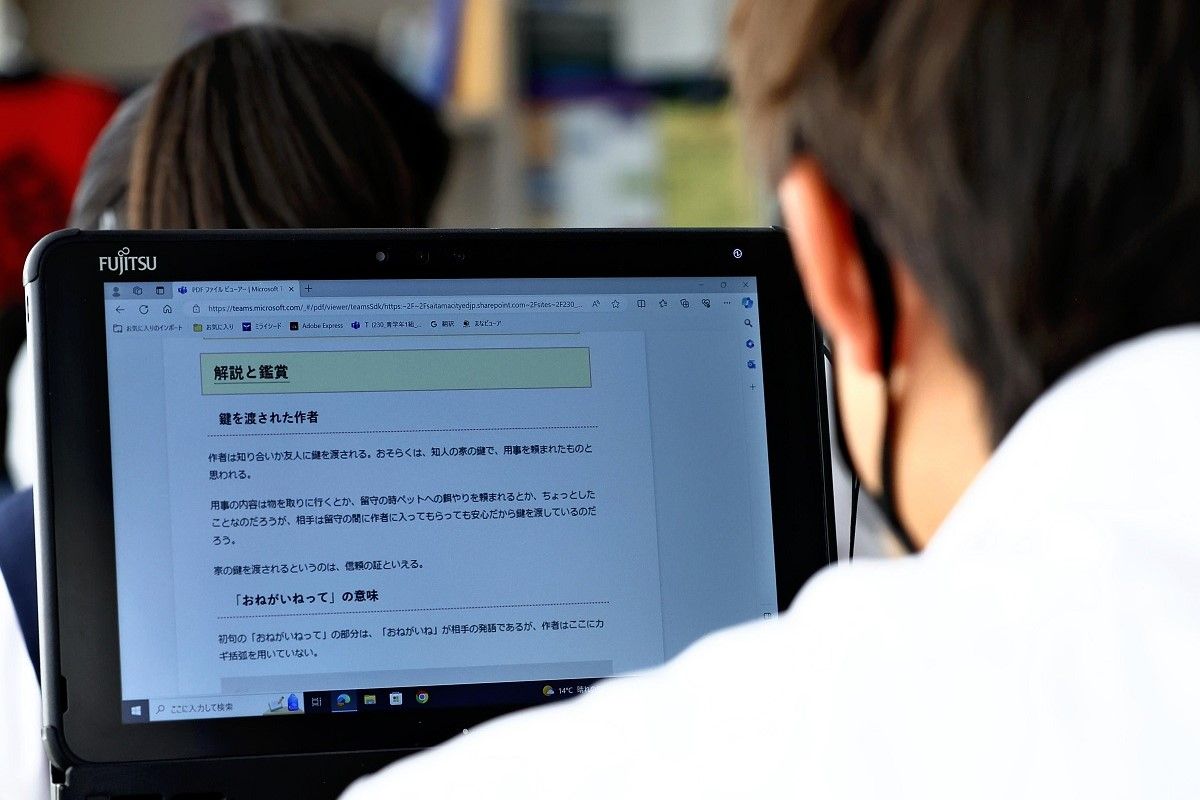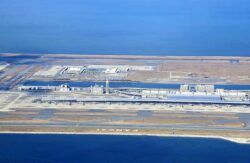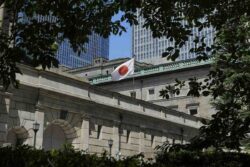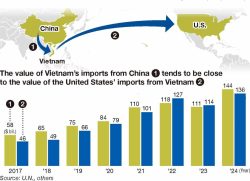
A student uses a tablet during a lesson at a junior high school in Saitama on Nov. 27.
2:00 JST, December 7, 2023
The Organization for Economic Cooperation and Development (OECD) indicated that school closures caused by the COVID-19 pandemic may have caused a decline in global student academic performance.
The OECD conducted the Program for International Student Assessment (PISA) for the first time since the outbreak of the novel coronavirus.
The average scores across OECD countries declined from the previous 2018 survey in all three areas of reading, mathematics and science.
The OECD analyzed the relationship between pandemic-induced school closures and math performance.
Countries and regions with a lower percentage of students reporting that they experienced “more than three months of closures” tended to have higher scores than those with a higher percentage, according to the OECD survey.
Taiwan, which ranked third in mathematics, had a low percentage of students experiencing “closures for more than three months” at 9.8%. South Korea, which ranked sixth, also had a low percentage of such students at 20.8%, both well below the OECD average of 50.3%.
On the other hand, Germany, ranked 25th in mathematics, went down five places from the previous survey, with a high percentage of 71.3% of its students experiencing school closures for more than three months.
Andreas Schleicher, the OECD’s director for the directorate of education and skills, acknowledged that there is a correlation between school closures and declining academic performances.
However, he also said some countries mitigated the damage by creating an environment that complements learning, such as distance learning and teacher support, even when schools were closed.
“In Japan, the school closures were short, and students’ academic performance was supported by shortened summer vacations and other factors. However, compared to other countries, Japan was unable to respond adequately to children from needy families and those who are truant from school,” said Prof. Daisuke Sonoyama of Osaka University, an expert on the state of schools around the world.
“Long-term monitoring of students is important, not just in terms of academic performance, but also in terms of how the school’s handling of the closures affected the students,” he said.
"Society" POPULAR ARTICLE
-

Tokyo, Kanagawa Prefecture Warned of Record-Breaking Short-Duration Precipitation, Meguro Ward Logs 134 Millimeters for an Hour (Update 2)
-

Typhoon Peipah Forms Near Amami Oshima Island, Expected to Move toward East and Hit Shikoku, Kinki Regions
-

Multiple Bear Sightings in Western Tokyo Lead to Municipalities in Area Calling for People to Stay Vigilant
-

Statues of Naked Women Being Removed From Public Spaces; Meant As Symbols of Peace, Now Thought Inappropriate
-

United Airlines Boeing 737 Plane Makes Emergency Landing at Kansai Airport as Passengers Evacuate on Slides
JN ACCESS RANKING
-

Japan’s Seafood Exports Still Hurting in Wake of Fukushima Incident, but Hopes Rising for Chinese Market
-

Japan’s Core Inflation Slows in July, Stays above BOJ Target
-

Japan in Prime Spot for Total Lunar Eclipse Early Monday Morning, 1st Visible from Country in Almost 3 Years
-

Japan, India Aim for More Than 500,000 People-to People Exchanges over Next 5 Years
-

S. Korea’s Lee Eager to Enhance Ties with Japan More




















